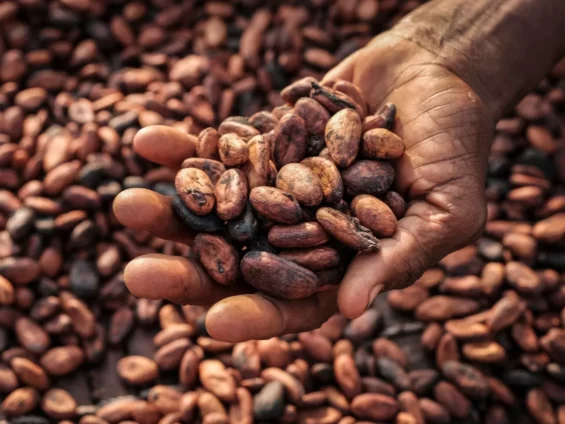Cabinet will publish the turnaround strategy of Ghana Cocoa Board (COCOBOD) by the end of July 2024, the IMF has revealed in its latest document.
This is aimed at restoring COCOBOD’s financial sustainability by strengthening financial oversight; reviewing the producer pricing mechanism to balance the need for a fair distribution of export proceeds to farmers and for covering COCOBOD’s financial and operational costs; rationalizing costs including staffing, industry, and financing costs based on a functional review of COCOBOD’s departments and subsidiaries; and phasing out quasi-fiscal activities entailed by the financing of cocoa roads and fertilizer programmes.
According to the International Monetary Fund, although COCOBOD’s financial position improved in 2023, the current year is proving challenging.
“Faced with a significant shortfall in production and a large increase in spot market prices, and following a similar decision in Ivory Coast, the authorities increased the farmgate price of cocoa by 58.0% in April 2024 to prevent smuggling and support Ghana’s cocoa market. To avoid this decision leading to a cashflow deficit, COCOBOD intends to increase the proportion of sales at the current high spot prices, while seeking additional spending rationalization”, the Fund said in its Ghana Second Review under the Extended Credit Facility.
It commended the Ministry of Finance for its enhanced financial oversight capabilities through the establishment of a cocoa desk to review COCOBID’s financial position regularly.
In this context, it added that “the authorities [government and the affected organisations] have also requested Fund technical assistance to develop an effective State-Owned Enterprise oversight strategy.
In February 2024, COCOBOD tapped $200 million from the World Bank loan to rebuild disease-hit cocoa farms.
The disease has wiped off about 500,000 hectares of farmlands and reduced cocoa output from the West African nation, the world's second-biggest cocoa producer after neighbour Ivory Coast.
Ghana's cocoa output declined to 600,000 metric tons last year after peaking at 1.048 million tons in the 2020/21 season, as the cocoa swollen shoot virus, aging plantations, illegal mining and smuggling took a toll on the sector.
Latest Stories
-
George Twum-Barimah-Adu pledges inclusive cabinet with Minority and Majority leaders
7 mins -
Labourer jailed 5 years for inflicting cutlass wounds on businessman
7 mins -
Parliament urged to fast-track passage of Road Traffic Amendment Bill
8 mins -
Mr Daniel Kofi Asante aka Electrician
8 mins -
Minerals Commission, Solidaridad unveils forum to tackle child labour in mining sector
14 mins -
Election 2024: Engagement with security services productive – NDC
15 mins -
‘Let’s work together to improve sanitation, promote health outcome’ – Sector Minister urges
16 mins -
Ellembelle MP cuts sod for six-unit classroom block at Nkroful Agric SHS
19 mins -
‘I’ll beat the hell out of you if you misbehave on December 7’ – Achiase Commanding Officer
22 mins -
AFPNC leads the charge on World Prematurity Day 2024
28 mins -
Court remands unemployed man over theft of ECG property
34 mins -
Election security rests solely with the police – Central Regional Police Command
36 mins -
NCCE engages political youth activists at Kumbungu on tolerance
36 mins -
‘In Mahama’s era students lacked chalk, but are now receiving tablets’ – Bawumia
46 mins -
Project commissioning not a ploy to attract votes – Oppong Nkrumah
48 mins

